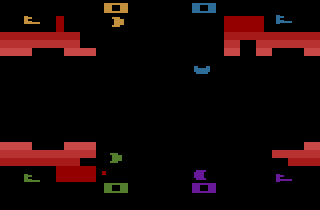Why do you assume sorcerers haven't done anything?
Because they often haven't.
In FR, there's no big Sorcerer who has ever done the big things. It's always Elminster or Manshoon (Again, somehow) or Drizz't or some other lore character that isn't a Sorcerer. It's pretty much in the same way in any setting because Sorcerers are often disconnected from the Narrative. Mainly because you can't really have those Sorcerers inspire other characters to become Sorcerers on account of the whole "Granny got freaky with a Dragon" aspect.
Heck... Take a look at 4e ramming Dragonborn and Tieflings into FR as unified and monolithic entities hailing from specific communities. And even after they yanked the Dragonborn Homeland out of the world they kept up the "Asmodeus turned all the Tieflings into this specific image rather than the variety they had, before!"
Yeah, it was hamfisted as heck and done poorly, but it gave those races -some- kind of connection to the greater storyline/world. Personally I would've gone for something a -bit- less drastic...
But WotC has never put forth that kind of effort with Sorcerers. You're supposed to be of some big bloodline of powerful entities and stuff, but it's not reflected in the world.
That chafes me.
It's the same with Rangers outside of Drizz't and arguably the Emerald Enclave but that's more "Everyone who likes Nature" than it is "Rangers".
There's a lot of narratives about stolen spellbooks and stuff, for example. But never anything about a Sorcerer casting more spells than he "Should be able to" 'cause he used sorcery points as a big "Gotcha" for a given story like he's Dirty Harry or something and that -should- totally be a thing.
But it just never is.
I also don't see any use for making a Class an actual thing in the game-world necessarily, unless the players of that game and characters themselves wish to identify themselves that way. For me, characters are what they are, and there is no need to categorize them.
If a character in the game world is a necromancer, then that's what they are and what they (and others) call them themselves. There's no need to say they are actually a Wizard, but with a minor in Necromancy. What's would be the point? What's gained? Likewise... if you fancy yourself as the Lord's Hand and you hold that position... there's no reason why you nor anyone else in the game world would say "Oh, so you're not the Lord's Hand per se... you're actually a Paladin with an Oath to the Crown!" Because the response would be "Uh, no... I'm the Lord's Hand."
Obviously others go the other way, and more power to them. But for me... if my PC is a skald, then they're a skald, not a bard.
What does being a Necromancer mean in that world? Are Necromancers just wizards? Is there a Taboo around Necromancy? Is a Necromancer Evil by Default because Necromancy itself is evil? Are Necromancers considered heroic figures, using wasted meat to fight wars or dig ditches on behalf of the community, freeing the living up to pursue other tasks?
The player can be whatever they want to be. And fit into the world however they want to fit into the world. I'm not talking about the Player.
I'm talking about the NPC Necromancer. I'm talking about the cultural and narrative assumptions that pop up when someone in the story is referred to as a Necromancer.
Play your Skald, by all means. What is a Skald to the world? What have Skalds accomplished? Separately, what have -Bards- accomplished that they're separate from Skalds? What defines each of these terms in the game world, not their dice-rolling functionality?



